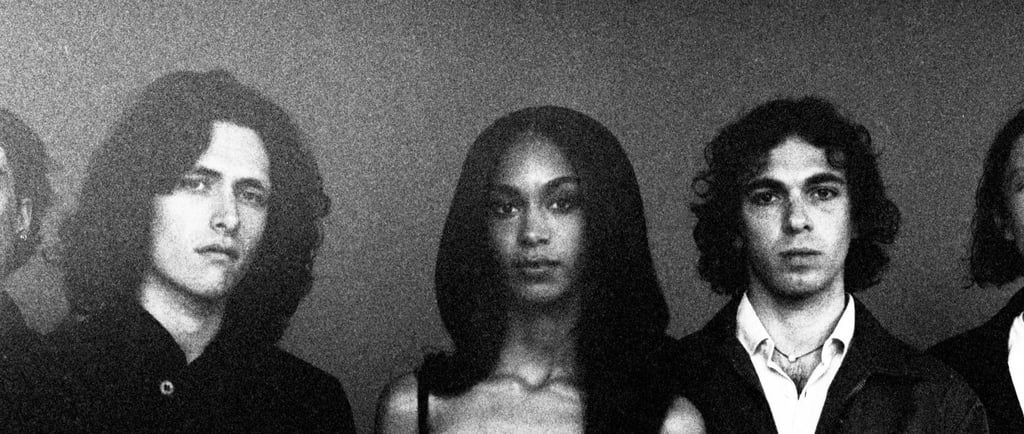Monobloc's 'Where Is My Garden' fortifies Post-Punk Revival
“Where is my garden? Where are my friends? Will this always feel like this?” Up-and-coming act Monobloc thematizes the widely recognized inner struggle between consumerism and contentment faced by artists.
ALTERNATIVENEW RELEASESREVIEWS
LEJA-JOSEPHINE BECKMANN
7/11/20242 min read


The New York-based band ‘Monobloc’ featuring vocalist Timothy Waldron, bassist Michael Silverglade, guitarists Nina Lüders and Ben Scofield, and drummer Zack Pockrose have launched their debut single, “I’m Just Trying To Love You” at the beginning of the year. Big festivals and gigs, such as Corona Capital and LCD Soundsytem have their name written on the line-up posters and now, they have returned with their brand-new single, “Where Is My Garden”.
The band drew inspiration from Steve Reich's "Music for 18 Musicians" while creating this project. They were also heavily influenced by the New York rock scene of the 2000s and the iconic sound of Joy Division, which is definitely refreshing post-punk and post-punk revival b being reintroduced and introduced again, as many post-punk and post-punk revival bands such as The Smiths, The Cure and The Strokes have gained popularity again in the 2020s. Recently formed bands with a post-punk sound, like Yard Act and Fontaines D.C., have also achieved noticeable popularity.
Now let’s focus on the tune and the sound of it. It kicks off with a brief instrumental introduction featuring guitar, drums, and bass. In the first few seconds, the guitar moves to the forefront, while the drums initially serve as subtle decoration before they become more prominent in the second half of the introductions alongside the bass. Waldrons' vocals then enter shortly after. Overall, the instrumental is pretty simple, it features synthesizers and the instruments mentioned before. The instrumental begins subtly in the first verse, then progresses with faster and more prominent drums in the pre-chorus, leading to a vibrant and energetic sound in the chorus. The second verse follows the same structure as the first one but transitions directly into the chorus without the gradual evolution through the pre-chorus. An instrumental break, with the same fast-paced and energetic sound as the chorus, divides the chorus from the bridge just before the song concludes.
Additionally to the instrumentation, they have included some creative elements such as distorting the vocalist’s voice, giving it a transmission-like quality but also putting in a notable creative pause where everything stops for a moment, interrupted by the sound of a faucet running, corresponding the second line of the second verse.
Taking a closer look at the lyrical content of the song, one encounters the narrators internal conflict between covetousness and being satisfied with what you have. The first verse portrays the speaker's personal feelings by comparing itself to a seed that is unable to grow in barren soil. As the pre-chorus unfolds, the narrators wish for more and more becomes more obvious as it mentions “Yeah, I think I want your life” after listening to the possessions of others. The recurring chorus questions the absence of important elements in the narrator's life and reflects on whether this feeling of lack will carry on. The envy intensifies throughout the second verse as it starts questioning what it takes to attain what others already have. The song concludes with a suggestion that the narrator is beginning to let go of their unhealthy obsession with wanting more and instead focus on the present.
In conclusion, Monobloc has produced a remarkable song that blends a cheerful and dancy sound with lyrical depth if properly paid attention to it. It captures the essence of post-punk perfectly and stirs up a nostalgic feel similar to a coming-of-age movie. I believe Monobloc has the potential to shape the sound of this summer and that their songs will end up in many people’s playlists. Looking forward to how this band is going to evolve and for what is about to come next.
Image: Julia Tarantino
Words by Leja-Josephine Beckmann
